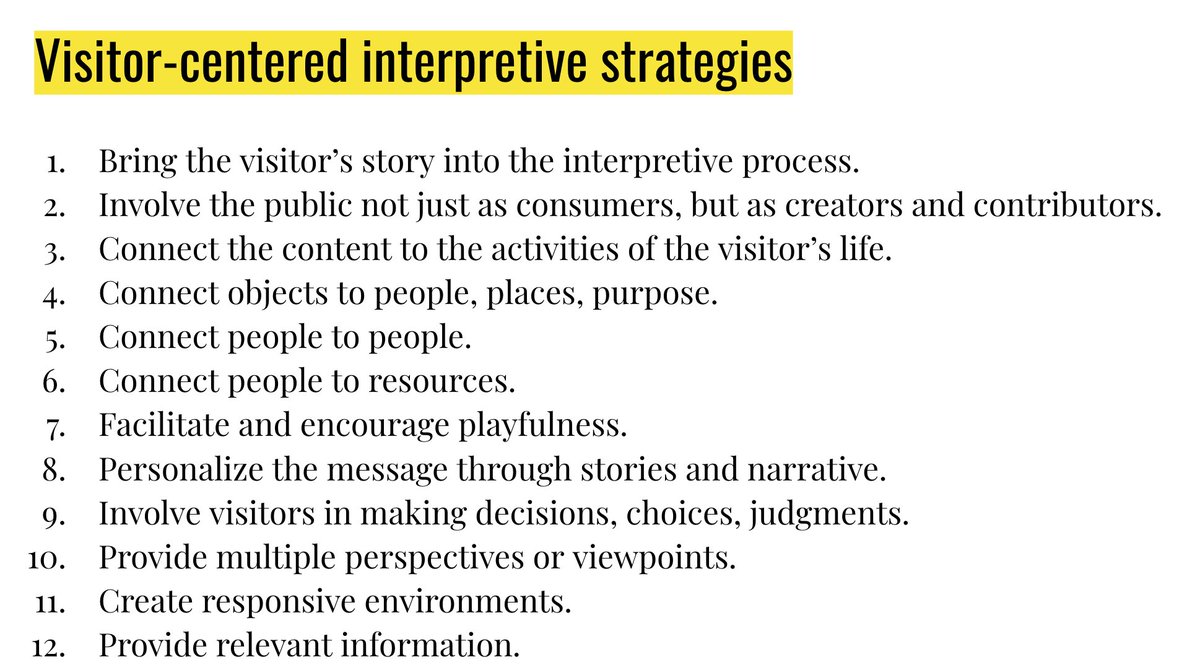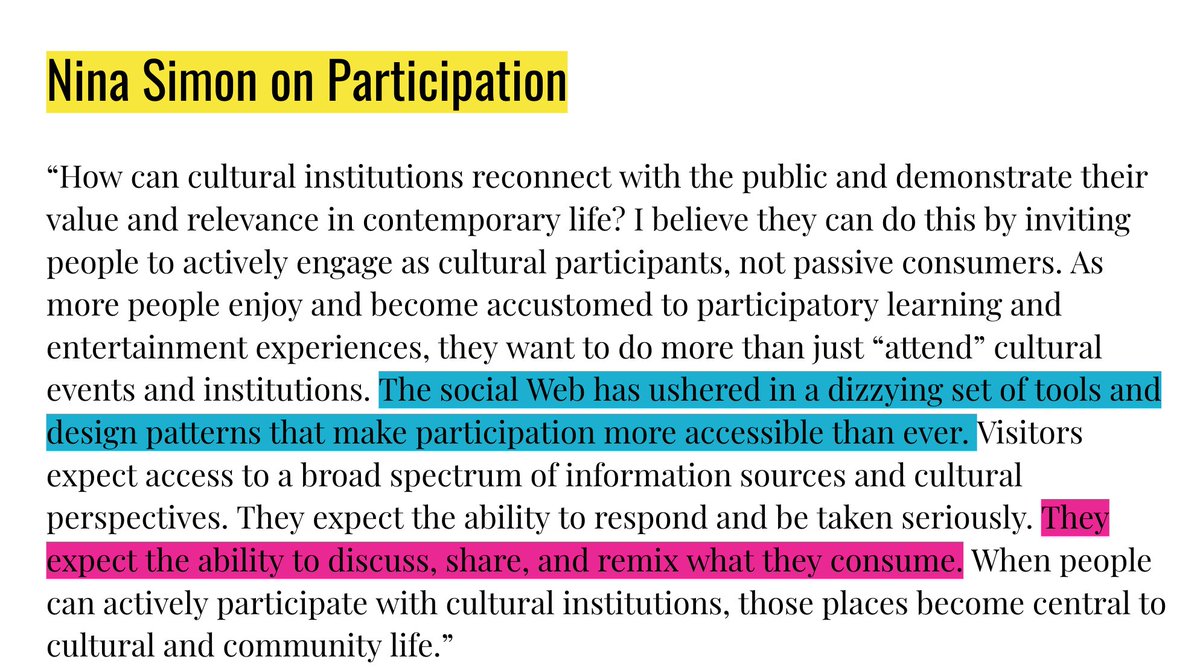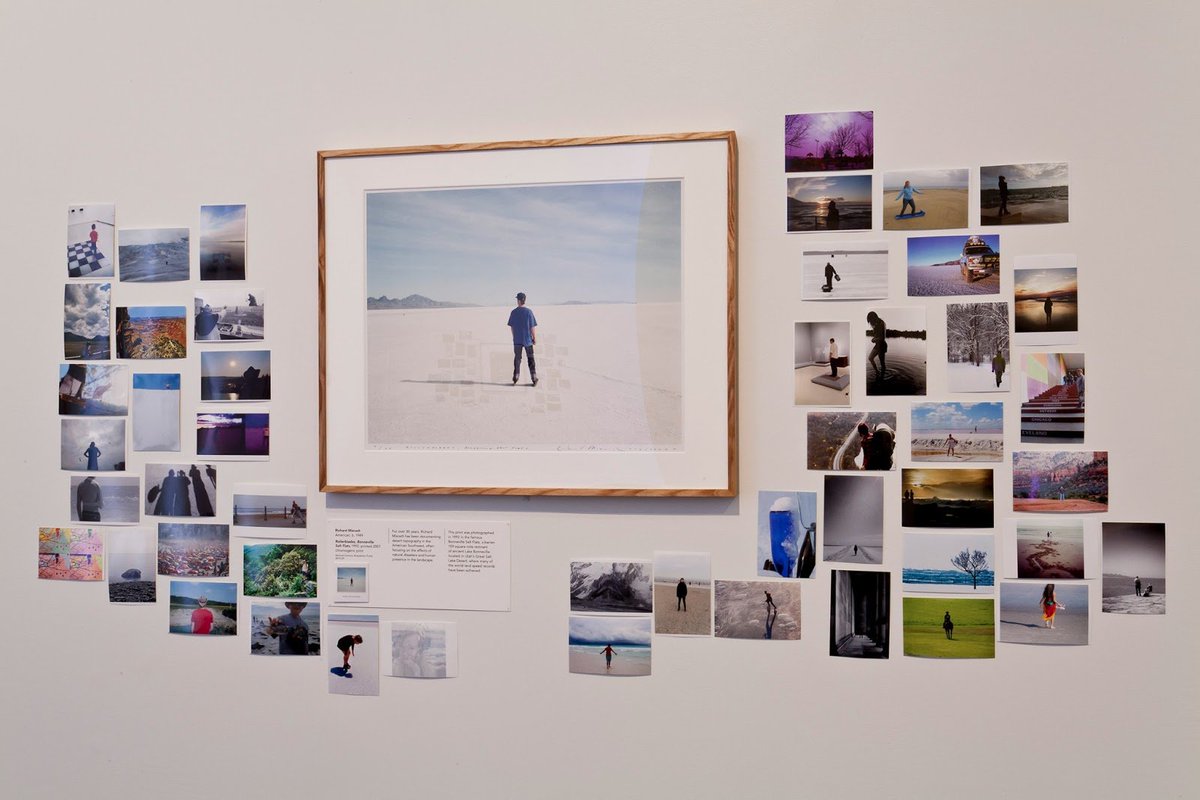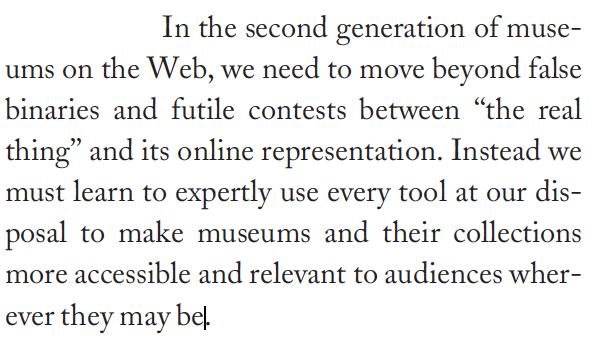Alright, #musetech nerds! Here's what we covered in week 2 of "Museums and New Media" at @GUmuseumstudies...
First, an oldie but goodie: 1998 Morrisey and Worts list article lists a range of interpretive strategies for engaging visitors using technology (think outside mere content delivery!) academia.edu/9284639/A_Plac… 

Next up: Listen to @TylerGreenDC @peterdueker @annecgoodyear on @kojoshow debate the impact of digitization on how people view and experience works of art. Does super zoom kill artistic intent and destroy the museum business model? You decide! danamus.es/2013/07/02/mus…
In 2014 @AnandWrites profiled the divergent approaches museums take to digital strategy (global domination! think local!). Features @sree (first CDO @metmuseum) & @brooklynmuseum's @shell7 (now first-ever CXO @the_barnes). mobile.nytimes.com/2014/08/08/art…
explores initiatives at @DIADetroit (AR), @ClevelandArt (kinesthetic and facial-recognition interactives), @ToledoMuseum (mobile scavenger hunts) designed to attract families and support new ways of seeing/being in a museum. toledoblade.com/Art/2017/01/29…
Of course, it wouldn't be a discussion of art museums and technology without a debate about selfies and Instagram! lamag.com/culturefiles/i…
We brought our exploration of the various roles of technology in museums (and how they should map to mission/audience/goals) with a look at @WomenInTheArts viral #name5womenartists campaign (heads up, they're running it again in March!) huffingtonpost.com/entry/can-you-…
We were lucky to host @mkurlandsky whose career path took her from museum studies to exhibition project manager to digital coordinator. Hear more from her about the realities of #musetech on a budget in this fab interview: musete.ch/2017/11/05/mar…
In our "What's 🔥 this week" segment of the class we talked about @googlearts wildly popular selfie-portrait app addition--including its fun factor and its flaws. See @MichaelFNunez's take on the feature's race problem: mashable.com/2018/01/16/goo…
We also looked at @Tate's use of VR to recreate and immerse visitors in Modigliani's art studio. Inspiring project but we debated: was it worth the $ and time? tate.org.uk/whats-on/tate-…
And, finally, I shared a day-in-the-life #musesocial experience responding to an impassioned Twitter discussion on the relative merits of crowdsourcing and whether its promoters in cultural orgs are woke or not narations.blogs.archives.gov/2018/01/18/why…
That's it for week 2! Next up during week 3: Online collections. We'll explore how to publish *usable* collection information and interrogate openness as a value in museums. #musetech
• • •
Missing some Tweet in this thread? You can try to
force a refresh









